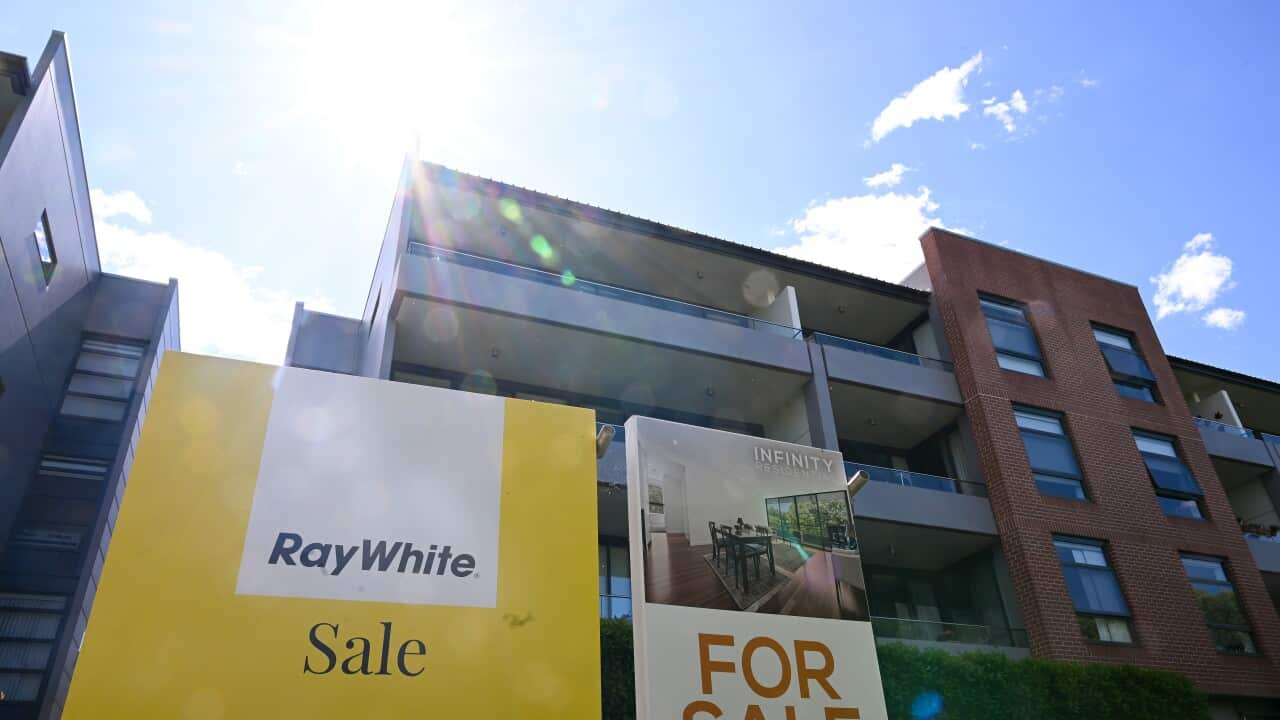Key Points
- A new research poll has found 43 per cent of migrants are more likely to have difficulty securing affordable housing.
- 60 per cent of migrants and refugees polled said it’s more difficult for those without English as a first language.
- Experts have called for the private rental market to be regulated.
An Essential poll conducted for Settlement Services International (SSI) found 43 per cent of those with a migrant or refugee background were more likely to have experienced difficulty securing affordable housing in the past 12 months.
More than 1,160 people were surveyed, including people of a migrant or refugee background, as well as those born in Australia speaking English only.
The survey for the agency, tasked with resettling thousands of newly arrived refugees each year, also found more than a quarter (26 per cent) had been forced to leave a property due to rising housing costs in the past year.
Ariet Oko Agwa, an Ethiopian refugee who came to Australia about six years ago, was close to sleeping in her car in between Brisbane and the Gold Coast with her five-year-old son.
Ariet Oko Agwa, an Ethiopian refugee, was close to being homeless because of the lack of affordable housing. Source: AAP / Supplied
They were saved at the last minute by members of her community, sleeping the night in a friend’s garage.
“I almost became homeless and then one of the ladies (from the Ethiopian community) told me instead of sleeping in your car, you can sleep in our garage because they had three bedrooms but they were full,” she told the Australian Associated Press.
The struggle to find a suitable home is still ongoing for the 25-year-old single mother, who grew up in Dadaab in Kenya, one of the largest refugee camps in the world.
The disability care worker lives in shared accommodation near the Gold Coast paying almost $600 a fortnight for a small bedroom.
Oko Agwa maintains it is not a conducive environment to raise her son.
She has learnt to live a meagre lifestyle with only a single bed in their small room after all her furniture was destroyed in torrential floods in southeast Queensland two years ago.
“It’s very difficult to find a house on my own. Maybe because I’m not from this country,” she said.
Some 60 per cent of migrants and refugees surveyed say it is more difficult for those without English as their first language to secure affordable housing.
Haitham Subhi, a housing expert at SSI, said the private rental market had become more expensive and scarcer in a post-COVID landscape, with average rents about $200 higher than pre-pandemic levels.
About half of migrants and refugees polled (49 per cent) felt they were unfairly blamed as the main cause of Australia’s housing affordability crisis.
“They feel the tension and they just want to be given a chance to start their new life.”
“The process itself is quite daunting because … you will find yourself going straight to the bottom of the list.”
Experts have called for the private rental market to be regulated with input and enforcement from industry bodies.


